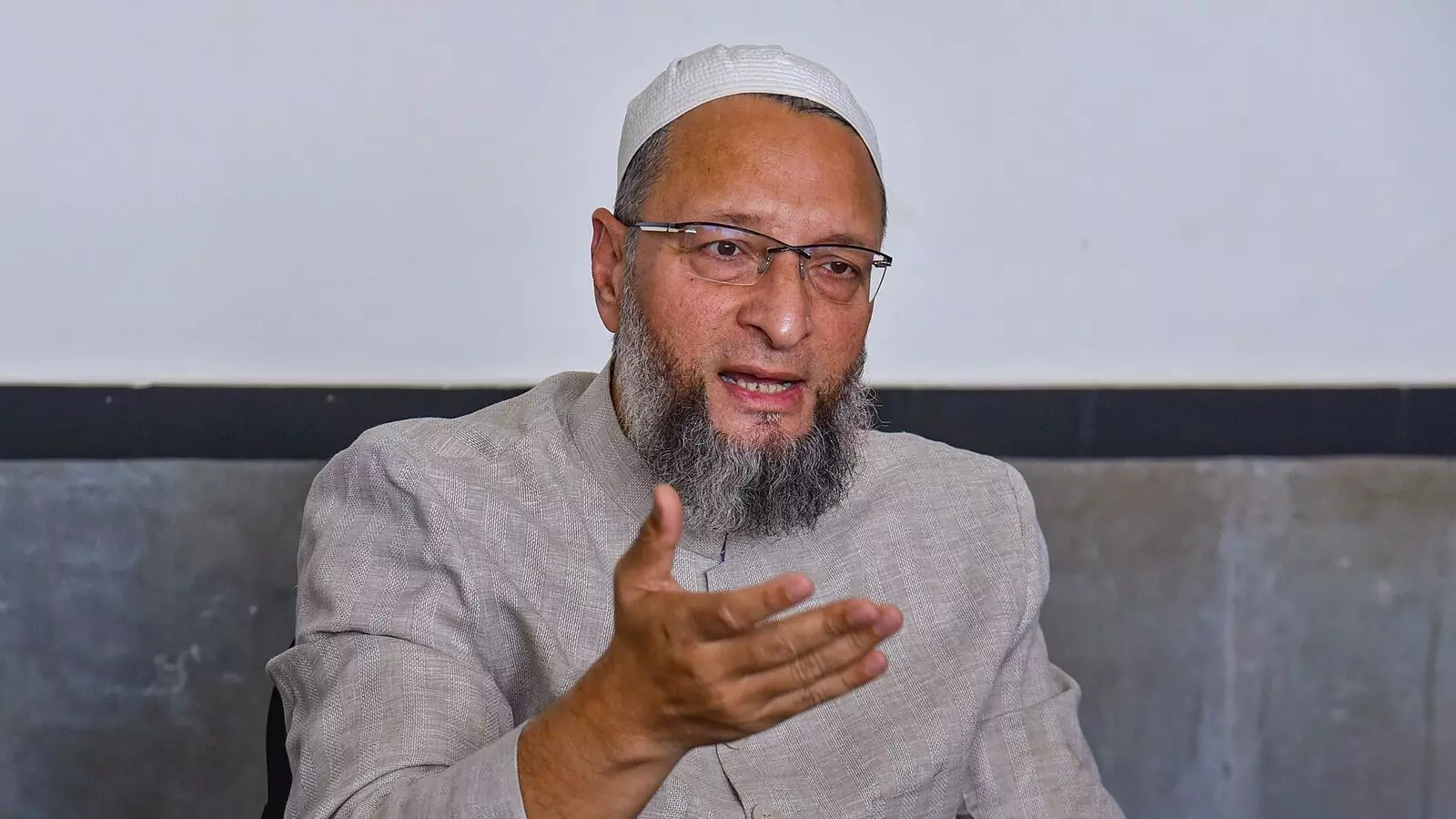SC agrees to hear Owaisi's plea for implementation of 1991 places of worship law
Bench comprising Chief Justice Sanjiv Khanna and Justice Sanjay Kumar to hear matters on this issue on February 17
By Kaniza Garari
AIMIM president Asaduddin Owaisi
New Delhi: The Supreme Court on Thursday agreed to examine a plea of AIMIM chief Asaduddin Owaisi seeking effective implementation of the 1991 places of worship law which asks to maintain the religious character of a place as it existed on August 15, 1947.
A bench comprising Chief Justice Sanjiv Khanna and Justice Sanjay Kumar ordered Owaisi’s fresh plea to be tagged with the pending cases on the issue and all matters, along with his plea, would be heard on February 17.
At the outset, advocate Nizam Pasha, appearing for Owaisi, the president of All India Majlis-e-Ittehadul Muslimeen (AIMIM), said that the court is seized of various pleas on the issue and the fresh one may be tagged with them as well.
“We will tag this,” said the CJI.
Owaisi filed the plea on December 17, 2024, through advocate Fuzail Ahmad Ayyubi.
On December 12, however, the bench headed by the CJI, while acting on a batch of similar pleas against the 1991 law, restrained all courts from entertaining fresh suits and passing any interim or final orders in pending cases seeking to reclaim religious places, particularly mosques and dargahs.
The special bench was hearing about six petitions, including the lead one filed by lawyer Ashwini Upadhyay, challenging various provisions of the Places of Worship (Special Provisions) Act, 1991.
The 1991 law prohibits conversion of any place of worship and provides for the maintenance of the religious character of any place of worship as it existed on August 15, 1947.
However, the dispute relating to Ram Janmabhoomi-Babri Masjid at Ayodhya was kept out of its purview.
Owaisi's plea sought a direction to the Centre to ensure effective implementation of the law while referring to instances where several courts had ordered surveys of mosques on pleas by Hindu litigants, said his counsel.
The top court, through its December 12, 2024 order, effectively stalled proceedings in about 18 lawsuits filed by various Hindu parties seeking survey to ascertain original religious character of 10 mosques including Gyanvapi at Varanasi, Shahi Idgah Masjid at Mathura and Shahi Jama Masjid at Sambhal where four persons' lives were snuffed out in clashes.
Muslim bodies like Jamiat Ulama-i-Hind seek strict implementation of the 1991 law to maintain communal harmony and to preserve the present status of mosques, sought to be reclaimed by Hindus on the ground that they were temples before invaders razed them.
On the other hand, petitioners like Updhyay have sought setting aside of Sections 2, 3 and 4 of the Act.
Among the reasons was also the contention that these provisions took away the right of judicial remedy to reclaim a place of worship of any person or a religious group.
"Ultimately, we will have to hear the arguments," the bench had said, observing the primary issue was with regard to Section 3 and 4 of the 1991 law.
While Section 3 deals with the bar of conversion of places of worship, Section 4 pertains to declarations as to the religious character of certain places of worship and bar of jurisdiction of courts, etc.
The Gyanvapi Mosque management committee, in its intervention plea, opposed several pending petitions that challenge the constitutional validity of the 1991 law.
The mosque committee listed a series of contentious claims made over the years concerning various mosques and dargahs (shrines), including the Shahi Idgah Masjid in Mathura, the Quwwat-ul-Islam Mosque near Delhi’s Qutub Minar, the Kamal Maula Mosque in Madhya Pradesh, and others.
It therefore said the petitions challenging the Act were filed with "mischievous intent" to facilitate lawsuits against these religious sites, which the 1991 Act currently protected.